Michele Valotti: Imperfection is Life
We talked about ethics, life and sustainability with Chef Michele Valotti, author of the famous “Manifesto di Cucina Viva” (literally, “Alive Cuisine Manifesto”).
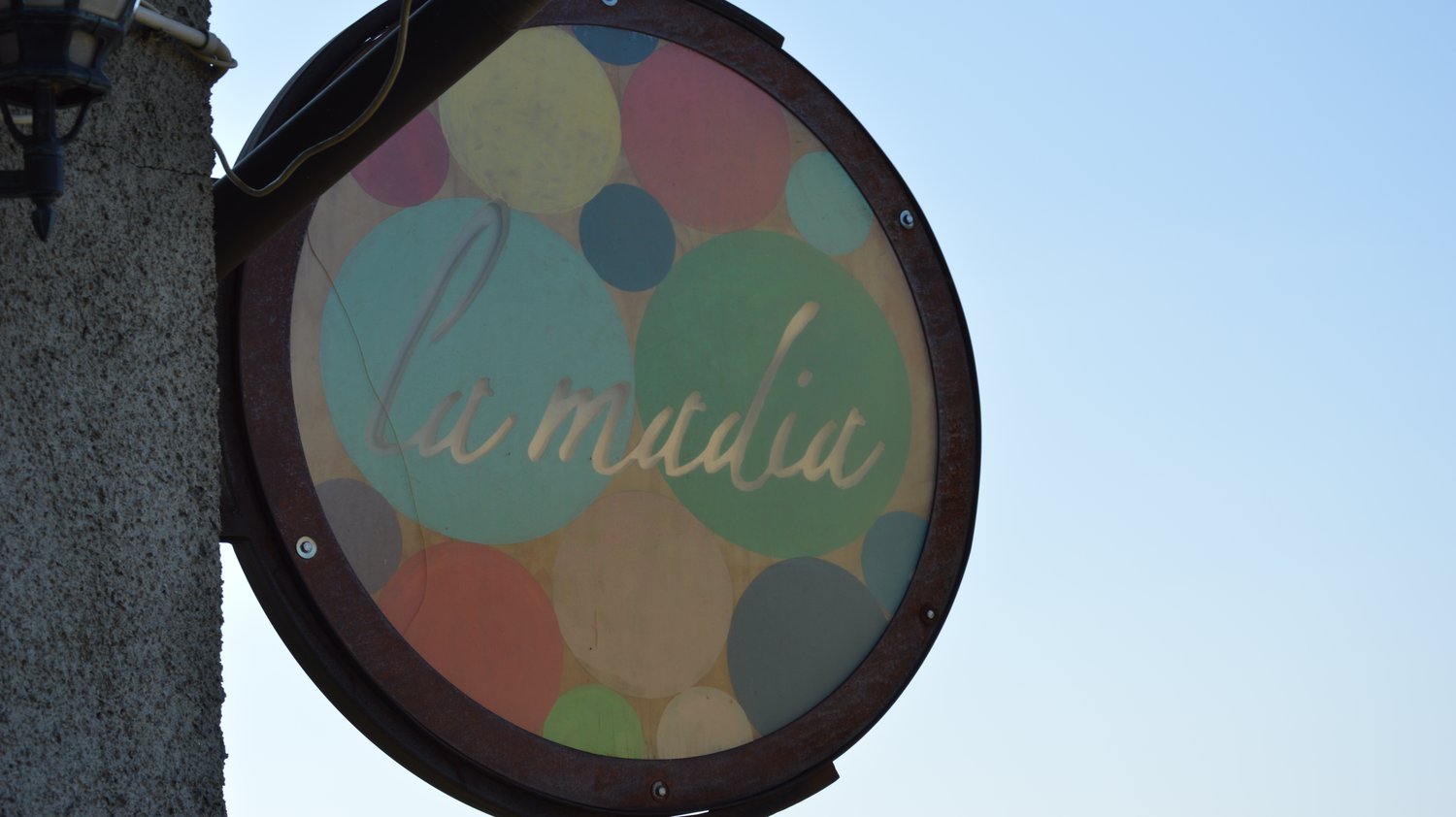
Michele Valotti is one of those chefs with such an eclectic personality, that is very hard to be categorized in a specific style. To eat at his restaurant La Madia, in Brione, means to expect the unexpected: could be a perfectly house-cured pancetta paired with some cherries preserved as olives, a green coffee miso broth, a very ancient variety of polenta tasting like honey or even a sheep fat candle, melting in front of you and ready to be the perfect dip for a fragrant pine cones bread. An invitation to reflect on time, on the heterogeneity of life, on our contrasting multitudes and perennial internal change. On catching the moment and doing what you feel like, without forcing yourself to respect a specific canon, without the need of being complex.
With Valotti, we talked about sustainability, life, beauty and ethics.
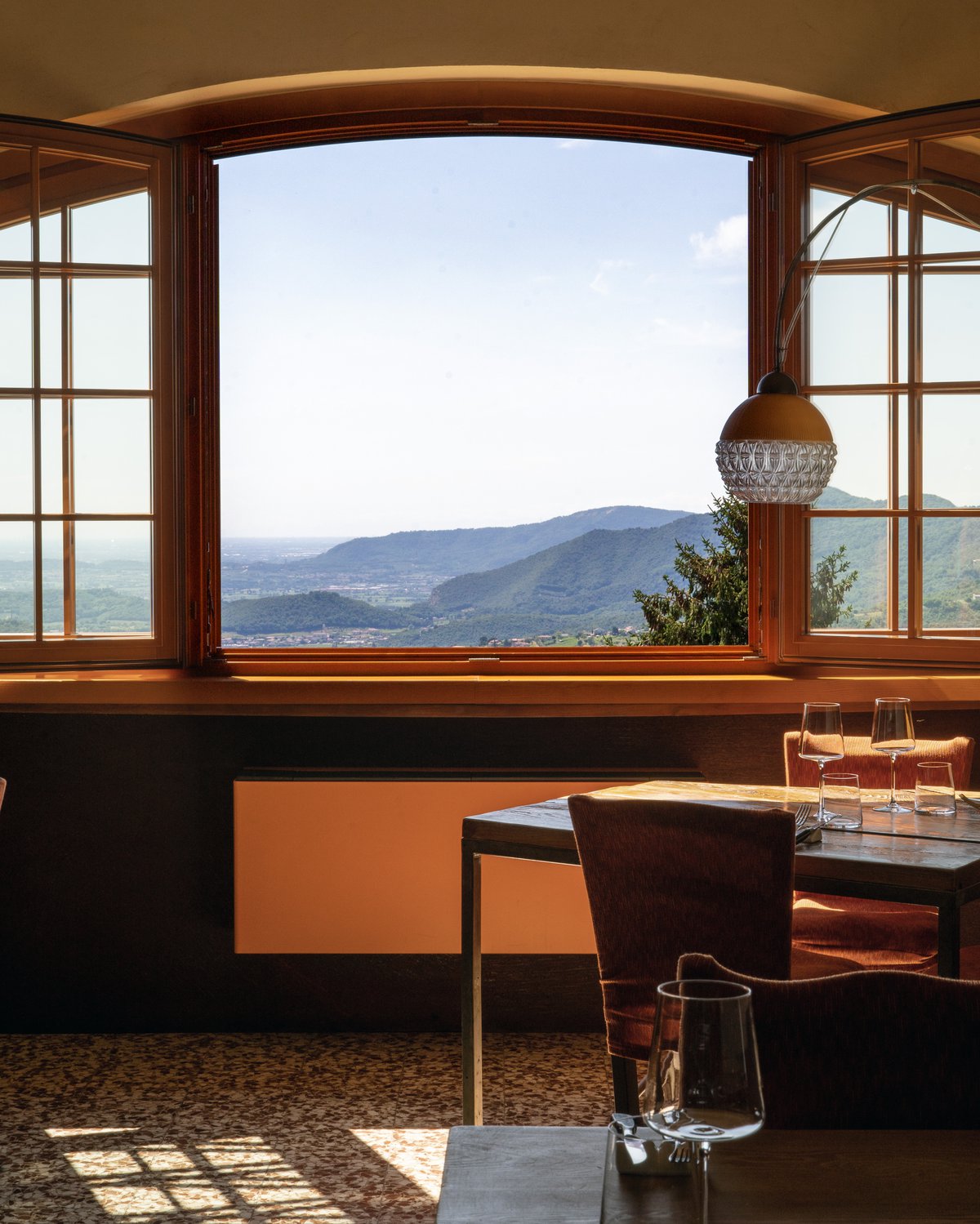
Why did you choose to be a chef?
I didn’t, it was a necessity. I come from a family of farmers, I was an agronomist and I also studied philosophy, not exactly a chef-oriented path. After some years I understood how to use my personal story to shape a unique cuisine.
All these things thought me, for instance, to have a close and sincere relationship with producers: we are somehow linked, we speak the same language. I also learnt to give an intimate cut to the menu: I wanted to be different, to express my thoughts, my passions and my feelings through the important act of feeding others.
After all, we also work to give a sense to our existence and to feel useful and needed, appreciated. Trying, peacefully, to stimulate people into our vision of the world.
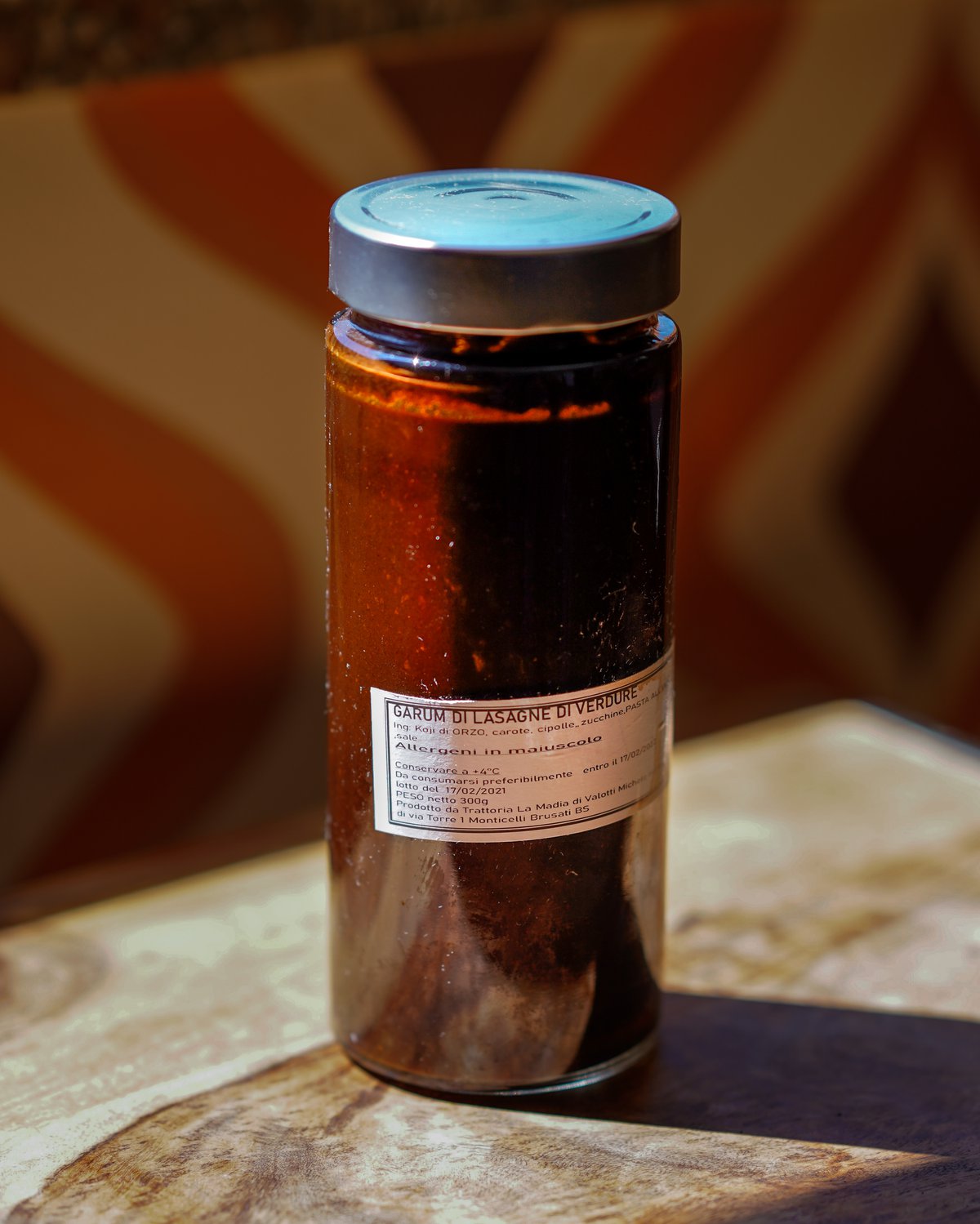
Could you tell us more about your “Manifesto di Cucina Viva” (“Alive Cuisine Manifesto”)?
My Manifesto is a summary of all the basis which should, in my opinion, characterize a contemporary restaurant. It relies on ethics and common sense, on health and sustainability, on the necessary relationship with small artisanal and local producers: the real heroes, the real keepers of a better world.
The first section is dedicated to vegetal produce, that must be seasonal and possibly form an ancient variety. Meats, then, must be consumed in small quantities and come from free animals, or hunted responsibly. Later, we move to the importante of self-produced fermentations: lacto-fermented vegetables, garum, miso and kombucha are biologically alive and available to interact with the bacteria contained in our body. Wines are coming from natural wine makers: those magical guardians, guaranteeing an ever-changing product, always new and fun. These points, along with some more, ensure a sustainable, nourishing, stimulating and tasty cuisine. We refuse pesticides, preservatives and chemical fertilizers, harmful poisons for us and the Planet.
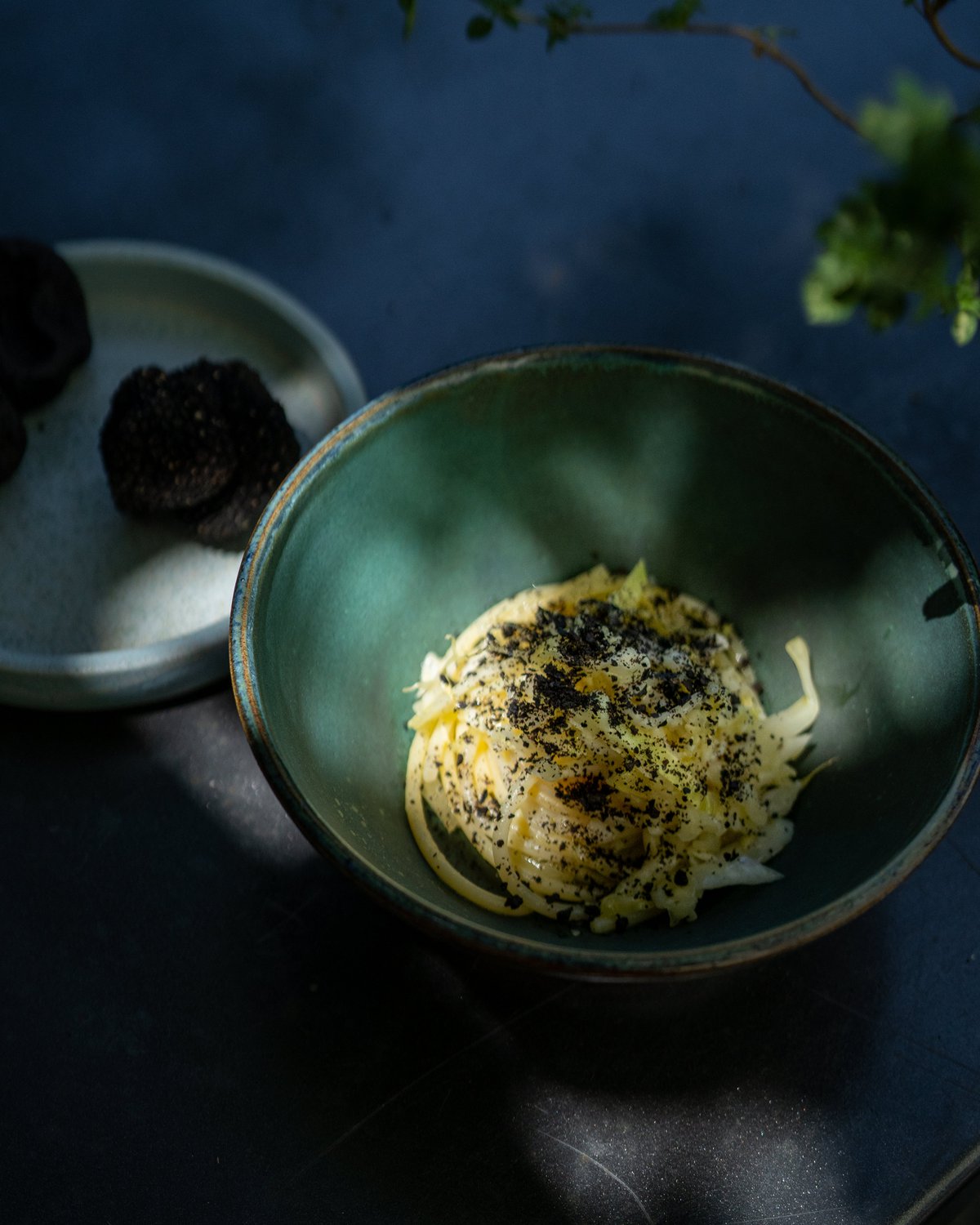
How did the Manifesto modify your style?
I define our cuisine “Alive”, because it contrasts the industrial standardization, that wants every product dead and identical to the pervious one. Industrialized food is technically perfect, homogeneous, obvious, predictable, sad. Always the same. A natural one is in a constant mutation, it is an ever-changing surprise.
Isn’t life pleasure corresponding to discovery? We love our partners when they mean comfort but also stimulation; falling in a non-mutable every day life kills us and art, just like progress, is a direct effect of certainties destruction. You cannot step into the same river twice, said Heraclitus, and you cannot eat the same dish twice, I add.
Cutting the same type of cheese, produced in two different months, must give a different result since everything is different: the animal, the weather, the land; but also the farmer’s inner-self, a new energy is transferred to the product. Because it’s extremely beautiful to wait for something unknown: it’s like being kids again, unwrapping a gift.
All this complicated work results in a dish-mirror of “that place in that moment”: no recipe is written or repeated, as tomorrow will bring a new version of that cheese, a new fermentation, a new shade of my soul.
At La Madia we seek imperfection, a symptom of the human gesture but also of the wild nature, stil not canonized by chemicals: if a dish is bitter, we let it be, without running after a ridiculous balance.
My cuisine accepts mistake, as that powerful and undervalued aspect reconnecting our minds to the possibility of feeling sad or happy, tired or full of energy. To the possibility of feeling different from machines: our ability of failing, of realizing a capturing error is, in this perfectionist world, fresh air. It’s the consequence of evolution, of learning constantly. Mistakes create a unique, emotional and unrepeatable moment. A poetic and emotional instant, which will never happen again: perfection attracts, imperfection makes you fall in love.
Why do we want to build a rational world? Always optimized, clean, straight. We are irrational, special.
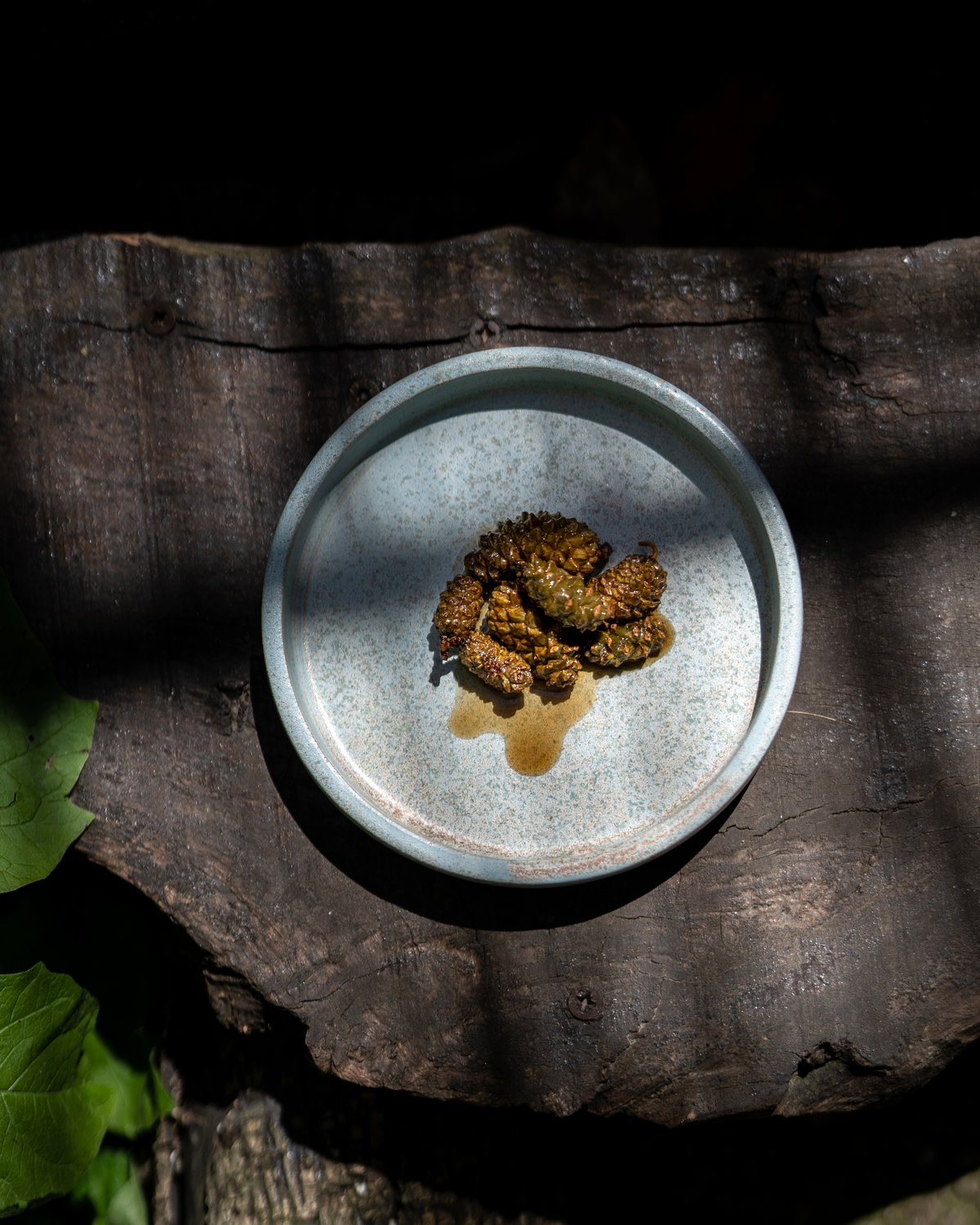
You pay a lot of attention to the environment. Can we talk about sustainability nowadays?
Our world has fallen victim of a generalized hypocrisy, quickly and silently accomplished in order to delete guilt feelings and responsibility. Let’s think of industrial meats, for instance. Super-processed trash, proposed in unacceptable shapes [like the teddy-bear-shaped salame the chef saw at a supermarket] and far from being natural: we try to avoid death at any cost, we turn our head to the other side. The animal characteristics are annihilated, so that we can forget about the homicide. But the solution lives, oppositely, within awareness.
In my ideal world, you should buy the animal while it’s still alive, looking in its eyes while it exiles the last breathe: we would really understand sustainability, we would be grateful to that life forever. The responsibility would be all yours, you couldn’t blame the industries: you sacrificed that animal, you deleted his existence. You also wouldn’t throw away a single bone, you would ask for a respectful farming method.
I am not particularly angry with big companies, but they should be more transparent in communicating what they produce and sell, without invading the limited space of small artisans. Being sustainable is expensive, but feels nothing compared to the price we are about to pay if we don’t act drastically.
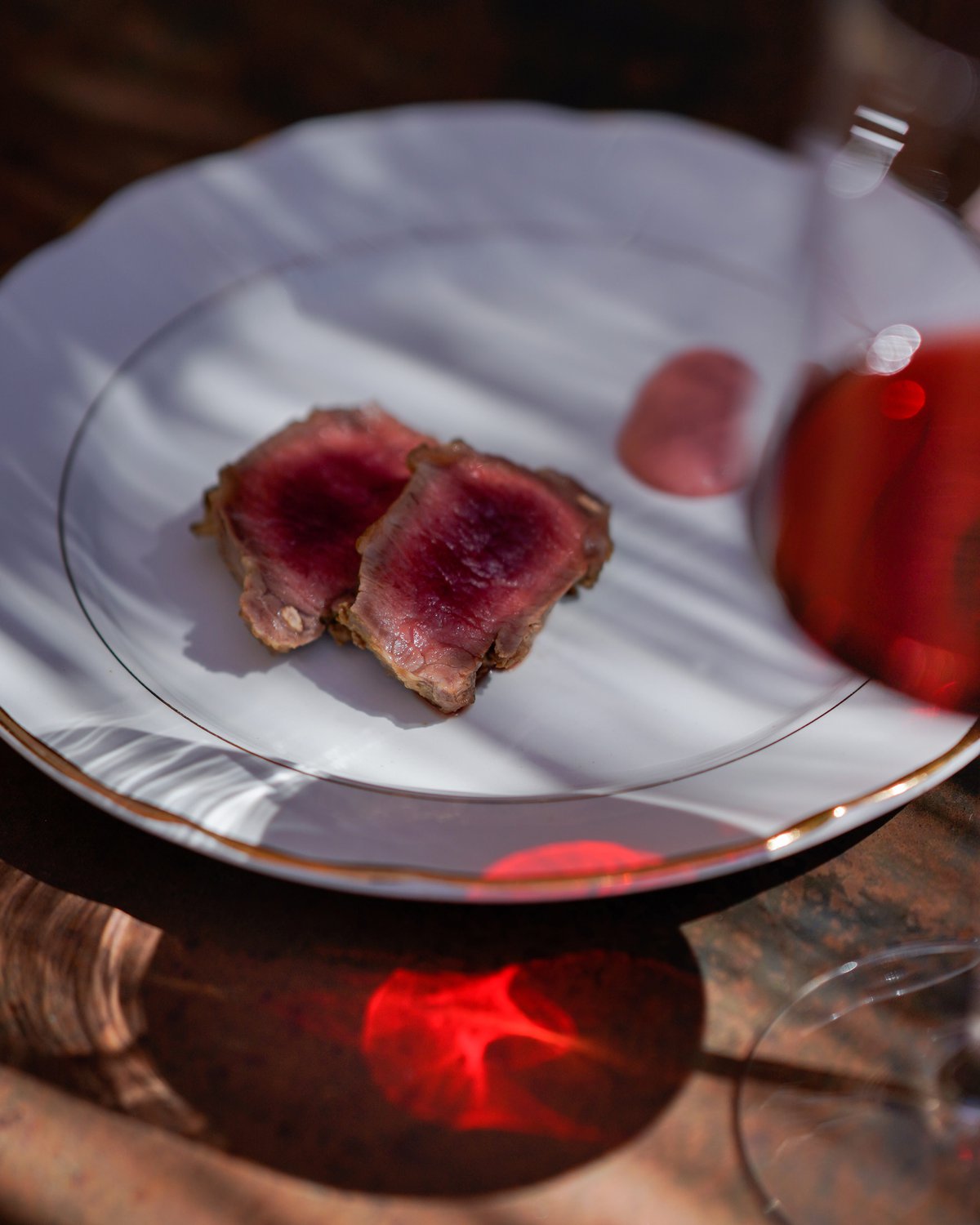
The dialogue is clear and incisive, opened towards many topics, hard to be summarized. But still, the hardest thing is to describe the tasting experience, sublime in its already mentioned imperfection, emotional and deeply human. Michele Valotti is a spiritual and practical chef, proudly unsure in a world of certainties, in love with mistakes and feelings.
La Madia is one of those rare environments, fully dedicated to build a world which is more tasty, beautiful and ethical. A world that you can experience fully, that you can breathe, eat, drink and love. A world full of life. But are we Alive?
